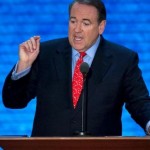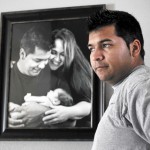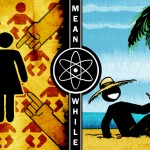Every Monday in Citizenship Confusion, Alan Noble discusses how we confuse our heavenly citizenship with citizenship to the state, culture, and the world.
“Churches are now separate from political structures . . . Religion or its absence is largely a private matter . . . Put in another way, in our ‘secular’ societies, you can engage fully in politics without ever encountering God, that is, coming to a point where the crucial importance of the God of Abraham for this whole enterprise is brought home forcefully and unmistakably. The few moments of vestigial ritual or prayer barely constitute such an encounter today” (1).
Taylor doesn’t bother to offer support for his claim that “religion or its absence is largely a private matter,” which testifies to the fact that most scholars view this as common knowledge. But is it?
When I reflect on American politics, I can’t imagine it without religion. Any presidential candidate who hopes to win office must be a Christian, preferably a Protestant with regular church attendance. The Christian Right is still, despite the Bush setbacks, a powerful political movement, as can be seen in groups like WallBuilders or political voices like Glenn Beck who assert that America is (or ought to be) a Christian nation by design; or candidates like Michele Bachmann or Herman Cain who publicly announce that God told them to get into politics. And even the severe derision and mockery of Christianity voiced by liberals and atheists testifies to the centrality of religion in American politics. So, is Taylor wrong? How can it be true that you can “engage fully in politics without ever encountering God”?
The key is in the last clause of the quote: Most manifestations of Christianity within American politics amounts to little more than Taylor’s “vestigial ritual or prayer” — empty religious gestures meant to appeal to certain patriotic images of a Christian Nation. But what is ironic is that it is precisely these empty symbols that Christians often defend vigorously.
Take two recent examples that I have seen posted on Facebook:
In case you haven’t heard, during his Thanksgiving address, President Obama failed to thank God, which lead to a widespread outcry from Christians and conservatives. Of course, as ABC reports, Obama did thank God in his Thanksgiving proclamation earlier in the week, just not in his address.
Similarly, I saw a friend recently post on Facebook that the White House was going to ban Christmas Trees this year. The exhortation of this post was that we must stop our President from ruining our nation by removing God. Naturally, this story is untrue, there will most certainly be a Christmas tree at the White House, but the sentiment — the general fear that Obama is a closest Atheist or Muslim, bent on destroying the religious foundation of our country one Christmas Tree at a time — was telling.
But, imagine if Obama hadn’t thanked God in an earlier proclamation and had banned Christmas trees and that the word “Christmas” was banned by every retail store in America (another popular Christian fear this time of year), how would that change things? Is our country any more Christian because of our President’s Thanksgiving address or holiday decorations or because of the language retailers use?
Perhaps, but I doubt it. And yet, these are the very issues which Christians are often so emphatic about, these “vestigial ritual[s] and prayer[s].”
My admonition is that the Church ought to be more devoted to creating a culture where God is encountered in politics as in all of life, rather than expending so much energy defending empty symbols.















